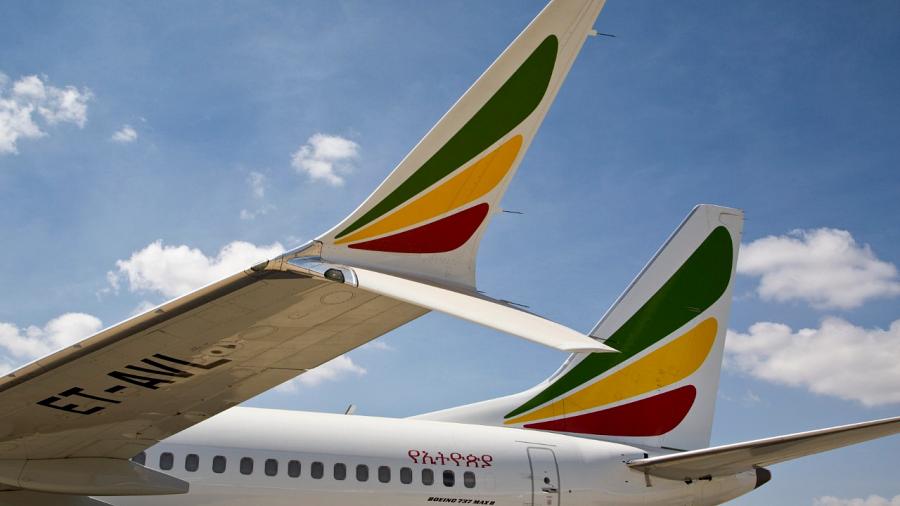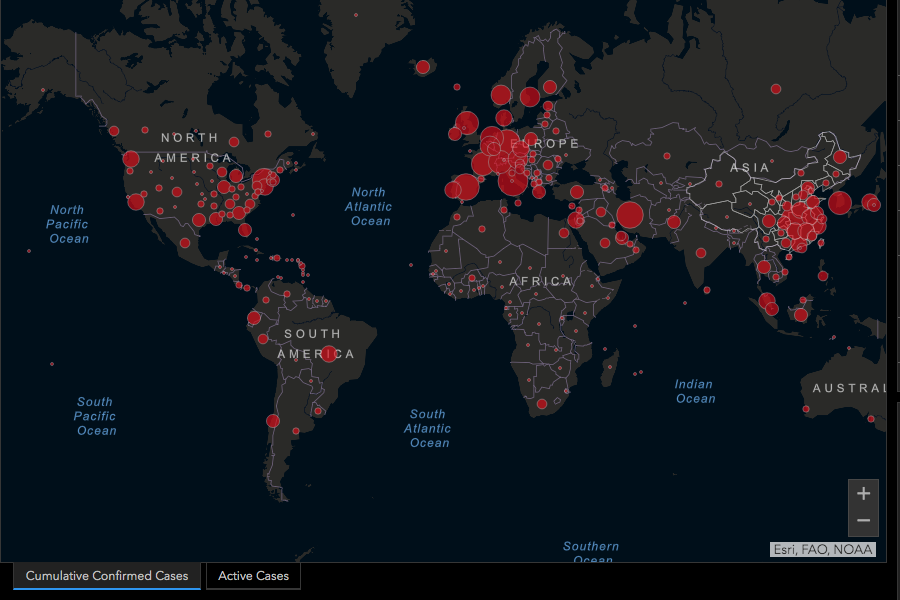
In-Picture | Sep 14,2025
Apr 4 , 2020
By FASIKA TADESSE ( FORTUNE STAFF WRITER )
 Ethiopian Airlines, which cut passenger flights to 80 of its 129 destinations, has jacked up fares by two-fold on average to compensate for revenue losses it is incurring due to a light passenger load.
Ethiopian Airlines, which cut passenger flights to 80 of its 129 destinations, has jacked up fares by two-fold on average to compensate for revenue losses it is incurring due to a light passenger load. Ethiopian Airlines, which cut passenger flights to 80 of its 129 destinations, has jacked up fares by two-fold on average to compensate for revenue losses it is incurring due to a light passenger load.
The airline, whose business is being hit hard by the global outbreak of Novel Coronavirus (COVID-19), is now availing tickets at the highest economy class price in an attempt to get to a break-even point. Two weeks ago, the CEO of the company, Tewolde G. Mariam, disclosed that because of flight disruptions after the outbreak of COVID-19 throughout the world, the company lost 190 million dollars in revenue in February and March.
Over the past couple of months, the airline has been cancelling flights and closing routes due to a lack of passengers, the global lockdown, and passageways and airspace closures in destination countries. The number of passengers has dropped sharply even on the routes it is still flying, leading the company to charge higher fares or close the routes.
Most of the flights are operating like charter flights to serve needy customers, according to a source close to the case.
Most of the flights are operating like charter flights to serve needy customers, according to a source close to the case.
Over the past two weeks, since Ethiopia has started a mandatory 14-day quarantine for all travelers coming to the country, flights are only close to being full when leaving Bole Airport and are almost empty when they return, according to the same source.
The variation between the old prices and new prices depends on the route. Currently, it costs 70,000 Br for a round trip flight between Addis Abeba and London. The airline used to charge between 18,000 Br to 24,000 Br depending on the season. Now the fares for this route have tripled.
It used to avail tickets to Washington, DC for an average of 1,000 dollars, but the latest fare reached roughly double that amount at 61,000 Br. A two-way ticket to Hargeisa, Somaliland used to cost 8,400 Br, but the fare has since doubled to 18,594 Br.
The revenue optimisation system the company uses has as many as 12 economic class fare booking designations. The lower fares will be available when a flight has many empty seats to sell compared to flight dates.
As a coping mechanism for the current slump in business, the company has begun to use its passenger fleet for transporting cargo. In addition to the belly hold, all of the passenger seats are being removed so that cargo can be loaded on the main cabin floor. The airline has been using 80pc of the international jets that have been grounded because of COVID-19 for the cargo shipments.
Addis Abeba Bole International Airport had been hosting over 30,000 passengers a day, but that figure has now sharply declined to less than 50, according to Prime Minister Abiy Ahmed (PhD).
The airline has stopped flying to about 80 destinations, including the Middle East, where all of its destinations are closed. In contrast, most of the destinations in the remaining continents are closed at least until April 15, 2020.
The current situation has been devastating not only to Ethiopian Airlines but also to the entire aviation industry, forcing most airline companies to ground their fleets and seek cash injections from their respective governments to overcome the crisis.
The industry needs 200 billion dollars in liquidity support simply to make it through, according to Alexandre de Juniac, the director-general and CEO of the International Air Transport Association (IATA), a trade association for the world's airlines. The Association estimates that revenue from passengers could plummet by 252 billion dollars or 44pc below 2019’s figure.
PUBLISHED ON
Apr 04,2020 [ VOL
21 , NO
1040]

In-Picture | Sep 14,2025

Fortune News | May 15,2021

Radar | Jan 05,2020

Commentaries | Jul 23,2022

Fortune News | Nov 04,2020

Radar | Jan 01,2022

Radar | Oct 12,2025

Radar | Oct 24,2020

Digital First | Mar 13,2020

Radar | Sep 10,2021

Dec 22 , 2024 . By TIZITA SHEWAFERAW
Charged with transforming colossal state-owned enterprises into modern and competitiv...

Aug 18 , 2024 . By AKSAH ITALO
Although predictable Yonas Zerihun's job in the ride-hailing service is not immune to...

Jul 28 , 2024 . By TIZITA SHEWAFERAW
Unhabitual, perhaps too many, Samuel Gebreyohannes, 38, used to occasionally enjoy a couple of beers at breakfast. However, he recently swit...

Jul 13 , 2024 . By AKSAH ITALO
Investors who rely on tractors, trucks, and field vehicles for commuting, transporting commodities, and f...

Nov 1 , 2025
The National Bank of Ethiopia (NBE) issued a statement two weeks ago that appeared to...

Oct 25 , 2025
The regulatory machinery is on overdrive. In only two years, no fewer than 35 new pro...

Oct 18 , 2025
The political establishment, notably the ruling party and its top brass, has become p...

Oct 11 , 2025
Ladislas Farago, a roving Associated Press (AP) correspondent, arrived in Ethiopia in...